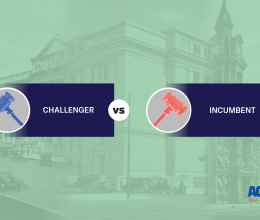COLUMBUS - The American Civil Liberties Union of Ohio was pleased that legislators passed legislation that would begin to repair the damage done to the criminal justice system by decades of “tough on crime” policies. Ohio House Bill 86 was passed by nearly unanimous bi-partisan support and will be signed by Governor John Kasich today. The bill will expand the availability of sentencing alternatives for low-level, nonviolent offenders; make uniform statewide standards for probation and parole; and correct sentencing disparities for crack and powder cocaine.
“For over a quarter century, experts and advocates have called on state leaders to stop incarcerating those who would be better served by rehabilitation,” said ACLU of Ohio Executive Director Christine Link. “The damage done by these policies is significant — our prison system is at 133% capacity, millions of taxpayer dollars are wasted on costly incarceration, and we are returning a higher number of ex-felons to our communities who are unable to make a life for themselves. This is only the first step in moving our state in the right direction.”
In August 2010, the ACLU of Ohio released “Reform Cannot Wait: A comprehensive examination of the cost of incarceration in Ohio from 1991-2010.” The analysis surveyed two decades of scholarly studies that illustrated the ramifications of the state’s unbalanced sentencing laws. At the launch of the report, State Senators Bill Seitz (R-Cincinnati) and Nina Turner (D-Cleveland) stood with the ACLU to highlight the importance of passing sensible reform quickly.
The legislation also included important reforms to the juvenile justice system. The bill will give judges more discretion to decide which juveniles should be prosecuted as adults, provides more opportunities for diversion, and allows for expanded use of judicial release for some youth.
“Unfortunately, these costly policies are not only limited to the Buckeye State,” added Link. “Ohio’s criminal justice reform law is an excellent first step that other states can build upon to reduce reliance on overincarceration and their corrections budgets, while protecting public safety and fundamental civil liberties.”
“Today does not mark the end of the fight for justice in our courts and communities—it is only the beginning,” said Link. “It now falls upon our state and local leaders to provide meaningful opportunities for rehabilitation, enforce laws fairly and compassionately, and give those released from prison the ability to change their lives. Our justice system will not be transformed overnight, but this legislation will lead us in the right direction.”









